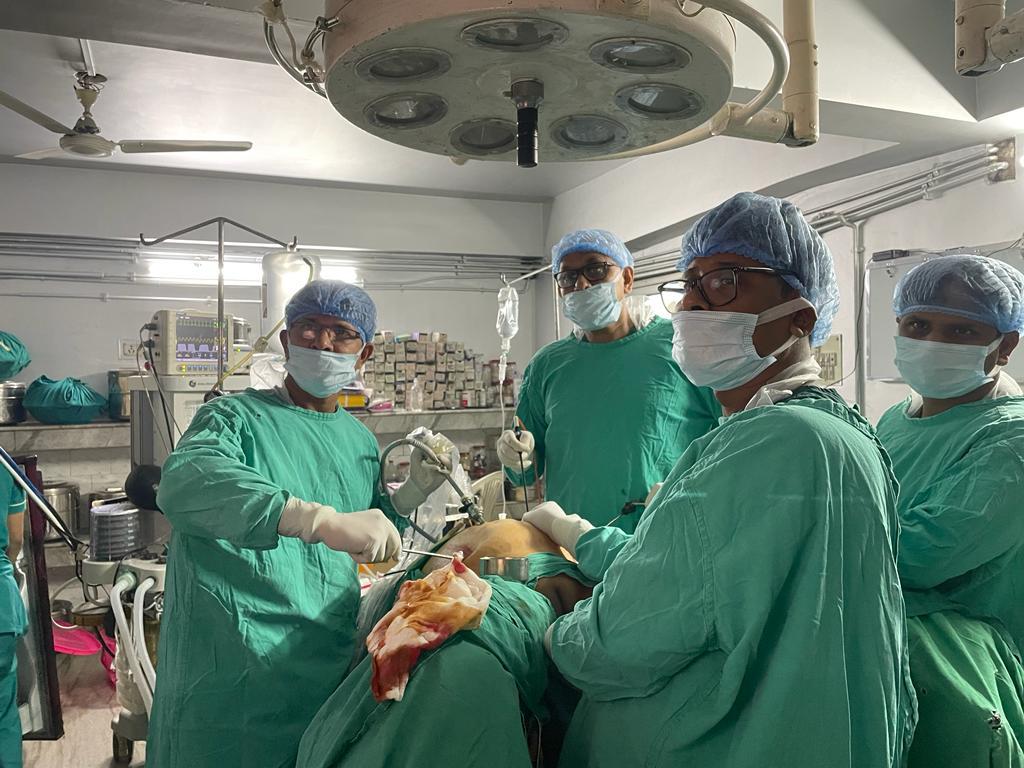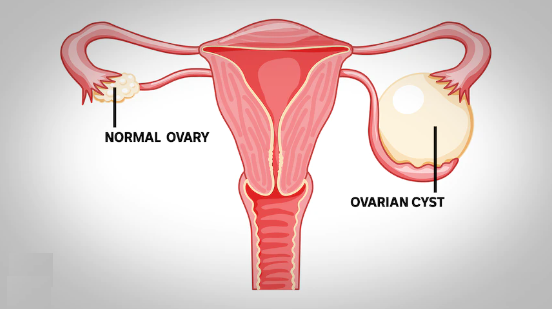
All About Ovarian Cysts: Causes, Symptoms, Diagnosis, and Treatment
Ovarian cysts, these are some sacs which are fluid-filled, develop on or within the ovaries. Though, most ovarian cysts are harmless and resolve on their own, some may cause discomfort or require medical intervention. We will delve into this common condition that affects many women, along with the laparoscopic ovarian cyst surgery, which is a sure cure for such kind of diseases.
Understanding Ovarian Cysts
Ovarian cysts are a natural part of a woman’s reproductive cycle. They can vary in size and may develop due to different factors.
Causes of Ovarian Cysts
Several factors contribute to the formation of ovarian cysts, including –
- Hormonal Imbalances: Hormonal fluctuations during the menstrual cycle can lead to the development of cysts.
- Polycystic Ovary Syndrome (PCOS): PCOS is a hormonal disorder that can cause the ovaries to enlarge and develop numerous cysts.
- Endometriosis: In this condition, the tissue lining the uterus grows outside of it, which can result in the formation of cysts.
- Pregnancy: During pregnancy, cysts called corpus luteum cysts can develop.

Common Symptoms
While some ovarian cysts are asymptomatic, others may cause noticeable signs, such as –
- Pelvic pain or discomfort
- Bloating or a feeling of fullness
- Irregular or painful menstrual periods
- Changes in urination or bowel movements
Diagnosis
To diagnose ovarian cysts, healthcare providers may use the following methods:
- Pelvic Examination: A physical examination of the pelvis helps detect any abnormalities or tenderness.
- Ultrasound: This imaging test allows visualization of the ovaries to identify and determine the characteristics of cysts.
- Blood Tests: Certain blood markers, such as CA-125, may be measured to assess the likelihood of cancerous cysts.
Treatment Options
Treatment for ovarian cysts depends on various factors, including the type of cyst, its size, and the presence of symptoms. Options include:
- Watchful Waiting: If the cyst is small and not causing symptoms, healthcare providers may suggest monitoring its progress through regular check-ups.
- Medications: Hormonal contraceptives or other medications can help regulate hormone levels and prevent the formation of new cysts.
- Laparoscopic Ovarian Cyst Surgery: In cases where the cyst is large, persistent, or causing severe symptoms, laparoscopic surgery may be advisable to remove the cyst while preserving the ovary.
The Final Words
If you are experiencing dominant symptoms or have concerns about ovarian cysts, consult with Dr. Sankar Dasmahapatra and determine the most appropriate course of action, including the possibility of laparoscopic ovarian cyst surgery.